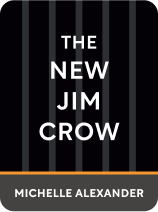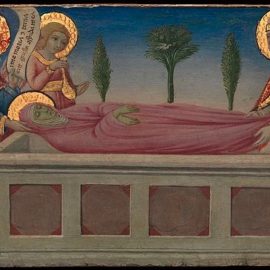

This article is an excerpt from the Shortform summary of "The New Jim Crow" by Michelle Alexander. Shortform has the world's best summaries of books you should be reading.
Like this article? Sign up for a free trial here .
What are some The New Jim Crow quotes? How do The New Jim Crow quotes discuss key concepts?
The New Jim Crow is about mass incarceration in the US. These The New Jim Crow quotes discuss the War on Drugs, jailing, and the impacts of mass incarceration.
Read on for three The New Jim Crow quotes.
The New Jim Crow Quotes
The New Jim Crow is filled with passages that explain the disparate impacts of the US criminal justice system. Here are three that cover key concepts.
“Nothing has contributed more to the systematic mass incarceration of people of color in the United States than the War on Drugs.”
This is one of The New Jim Crow quotes about the war on drugs and incarceration is the latest instantiation of centuries-old racial discrimination against black people.
It avoids the overt racism of the slavery and Jim Crow methods by using terms like “tough on crime,” but it began in conscious racial motivation.
Starting in the 60s with Barry Goldwater and rising with Nixon, there was deliberate maneuvering by politicians to subtly exploit the vulnerabilities of Southern whites, who were concerned with the Civil Rights campaign.
- Said Nixon’s chief of staff: “you have to face the fact that the whole problem is really the blacks. The key is to devise a system that recognized this while not appearing to.”
Like slavery and Jim Crow before it, the New Jim Crow was instituted by appealing to the vulnerability and racism of lower-class whites, who felt threatened economically and socially by black progress, and who want to ensure they’re never at the bottom of the American social ladder. (Shortform note: protecting social status seems to be a basic human instinct.)
What began with a political agenda rapidly proliferated to many stakeholders, all incentivized to maximize the war on drugs and mass incarceration without being consciously racially biased. This includes:
- Law enforcement, who receive federal grants for drug arrests
- The media, which sensationalizes drug crime for views and has stereotyped black people as mainly responsible for drug crime
- Politicians who appeal to scared constituents and one-up each other on being tough on crime (including Clinton and Obama)
- Private prisons (which account for 8% of inmates)
No stakeholder has necessarily seen the big picture of the institution they supported; they were merely safeguarding their own interests and participating in the zeitgeist.
To be clear, Alexander is not accusing law enforcement and other stakeholders of explicit and conscious racism. Rather, the system has created a public consensus image of criminals as being black males, and people cannot acting along subconscious biases.
“Today’s lynching is a felony charge. Today’s lynching is incarceration. Today’s lynch mobs are professionals. They have a badge; they have a law degree. A felony is a modern way of saying, ‘I’m going to hang you up and burn you.’ Once you get that F, you’re on fire.”
The legal system was stacked against those arrested for drugs, as seen in the second of The New Jim Crow quotes.
- Public defenders may have over 100 clients at a time and may meet with a lawyer for only a few minutes.
- Some states deny representation for people who earn over a certain income limit.
- Nearly all cases are resolved through a plea bargain. The full drug penalties are so severe – eg 20 years in prison for possession; in some cases life imprisonment – that when prosecutors offer “just 3 years,” it seems foolhardy not to take it. This transfers substantial power from judges to prosecutors and encourages prosecutors to overcharge.
- The Supreme Court upheld draconian laws like California’s three strikes law, which mandates 25 to life sentences for a third charge of a felony. Not 3 separate cases – 3 charges in a single case could qualify as 3 strikes.
- Many prisoners are released on parole and sent back due to technical violations (missed appointment, became unemployed, failed drug test).
“The fate of millions of people—indeed the future of the black community itself—may depend on the willingness of those who care about racial justice to re-examine their basic assumptions about the role of the criminal justice system in our society.”
The challenge is fixing the problem, which is discussed in the last of The New Jim Crow quotes. Alexander’s recommendations on how to upend the system requires inverting all the critical pieces holding the New Jim Crow in place:
- Most importantly, there must be public consensus that the way we approach drug crime produces a racial caste and must be dismantled. Indifference cannot reign.
- Similarly, Brown v. Board did not cause sweeping changes – it was public support 10 years later that caused the real changes in society.
- All financial incentives to arrest poor black people for drug offenses must be revoked. Those with jobs in jeopardy must be retrained.
- A seismic culture shift must happen in law enforcement – black people must no longer be viewed as the enemy. Data must be collected to prohibit selective enforcement.
- Public defender offices must be funded at the same level as prosecutor’s offices.
- Drug sentence laws and re-entry laws stripping away civil rights must be rescinded or dampened.
- Proper drug treatment and re-entry programs must be instituted.
- White people must be included in black movements to create an economic and class-based coalition based on all human rights. They should be given a stake in integration.
- This would require whites to give up their racial privilege.

———End of Preview———
Like what you just read? Read the rest of the world's best summary of Michelle Alexander's "The New Jim Crow" at Shortform .
Here's what you'll find in our full The New Jim Crow summary :
- How the US prison population increased 10x in 30 years because of harsh drug policies
- How being "tough on crime" was deeply motivated in discrimination against black people
- Why being convicted for a crime is essentially a life sentence of poverty and return to prison






